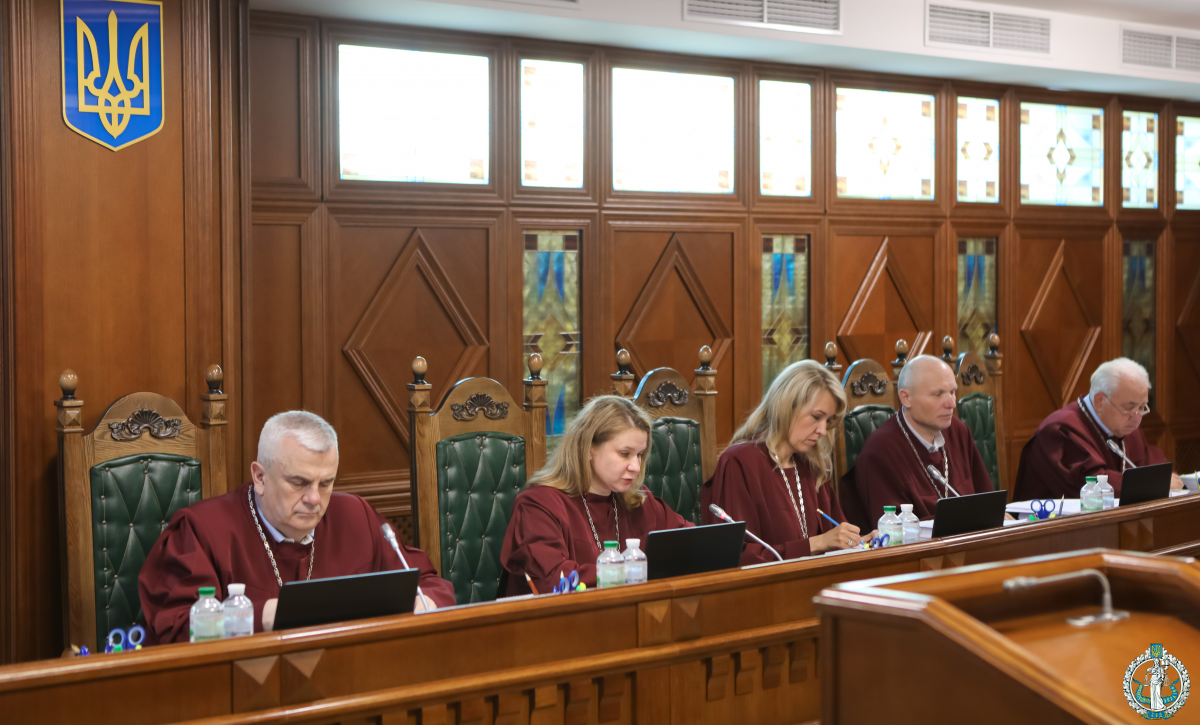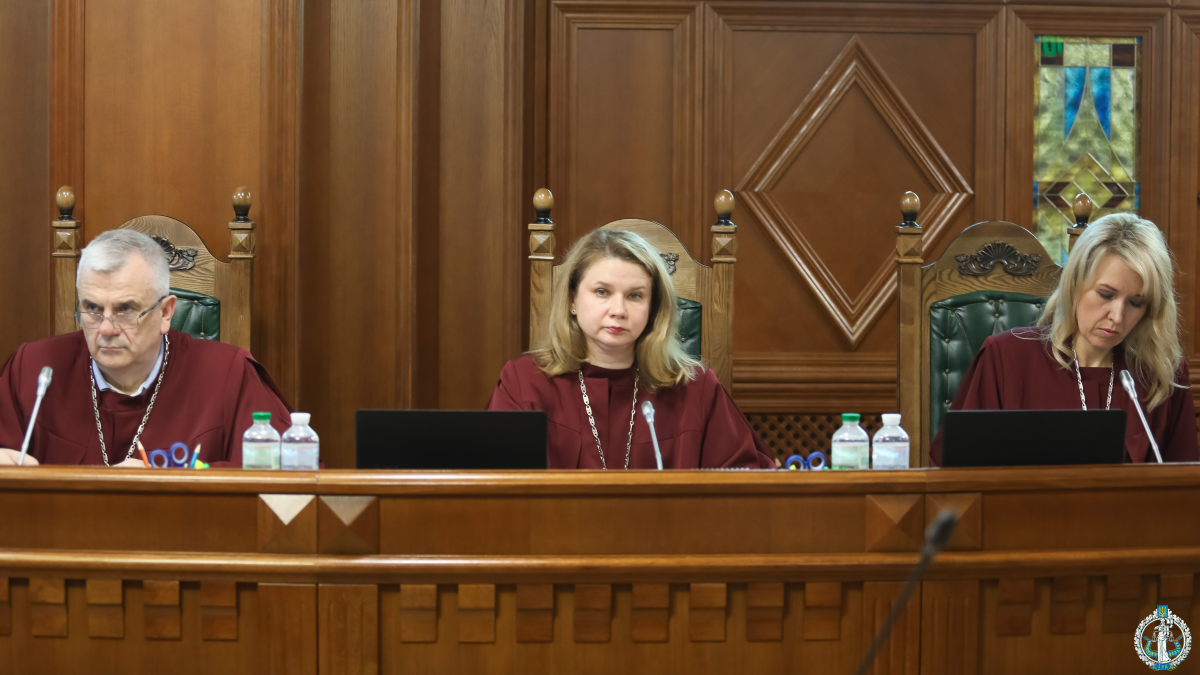17 July, 2024
On 17 July 2024, the First Senate deliberated the case upon the constitutional complaint of Liudmyla Kovalchuk in the public part of the plenary session in the form of written proceedings.
According to the judge-rapporteur in the case, Olha Sovhyria, the applicant lodged a complaint with the Constitutional Court of Ukraine to verify the constitutionality of paragraph 3 of Section II, “Final and Transitional Provisions” of the Law of Ukraine “On Amendments to Certain Legislative Acts of Ukraine’ No. 1774-VIII dated 6 December 2016 as amended (hereinafter, “Law No. 1774”).
The disputed provisions of Law No. 1774 stipulate that “the minimum wage after the entry into force of this Law shall not be applied as an estimated value for establishing the salaries and wages of employees and other payments, except for the calculation of the annual amount of funding for the statutory activities of political parties. Until amendments are introduced to the laws of Ukraine regarding the non-application of the minimum wage as an estimated value, it shall be applied in the amount of the subsistence minimum for able-bodied persons established as of 1 January of the calendar year, starting from 1 January 2017”.
The applicant claims that as a result of the application by the courts of Ukraine of of paragraph 3 of Section II “Final and Transitional Provisions” of Law No. 1774, the amount of the pension increase was actually reduced compared to that previously established by Article 39 of the Law of Ukraine “On the Status and Social Protection of Citizens Affected by the Chornobyl Disaster” No. 796-XII dated 28 February 1991 as amended. In her opinion, the disputed provisions of Law No. 1774 narrowed the content and scope of her rights, which violated her right to property guaranteed by Articles 41.1 and 41.4 of the Constitution of Ukraine.
The judge-rapporteur reported that the First Senate is also proceeding with a constitutional complaint filed by Olena Linkevych, which raises the same issues.
In this case, the Court proceeded to the in-camera part of the plenary session.
The public part of the plenary session is available on the official website of the Court in the section “Archive of video broadcasts of sessions”.



